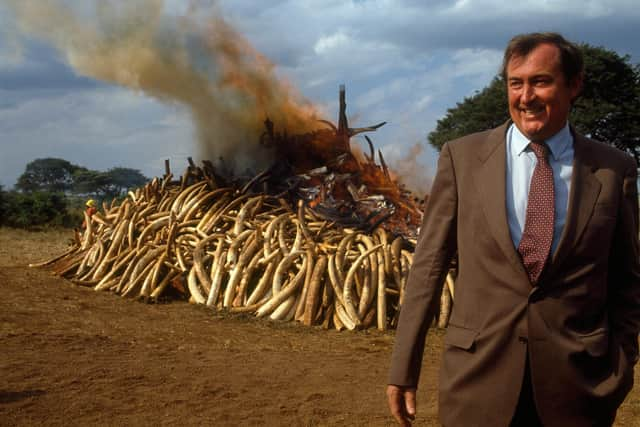'Very sad' Prince William pays personal tribute after death of leading conservationist
William reflected on his previous dealings with Mr Leakey, particularly his dedication to stop elephant poaching.
In a tweet, the royal wrote: “I was very sad to hear of Richard Leakey’s death.
Advertisement
Hide AdAdvertisement
Hide Ad“He was an inspirational & courageous conservationist and I was privileged to meet him.
“He transformed the Kenyan Wildlife Service & valiantly spearheaded efforts to stop elephant poaching.
“Conservation has lost a true visionary.”
The tweet was signed off with the letter “W” to denote it being a personal tweet.
William’s work on conservation is long-established, having been patron of the wildlife charity Tusk since 2005.


And it was during a visit to Kenya, Namibia and Tanzania in the autumn of 2018, when he met frontline conservation workers and those from local communities, that William came up with the idea for his climate change initiative, the Earthshot Prize.
William’s environmental work was also praised by the Queen in her Christmas Day message to the nation.
Kenyan president Uhuru Kenyatta announced Mr Leakey’s death on Sunday, saying he had “served our country with distinction”.
The cause of death was not confirmed.
Richard Erskine Frere Leakey was known for his fossil-finding and conservation work in his native Kenya.
Advertisement
Hide AdAdvertisement
Hide AdHe was the son of globally renowned anthropologists Louis and Mary Leakey, and also held a number of public service leadership roles including director of the National Museums of Kenya and what became the Kenya Wildlife Service.
A message from the Editor:
Thank you for reading this article. We're more reliant on your support than ever as the shift in consumer habits brought about by coronavirus impacts our advertisers.
If you haven't already, please consider supporting our trusted, fact-checked journalism by taking out a digital subscription.
Comments
Want to join the conversation? Please or to comment on this article.